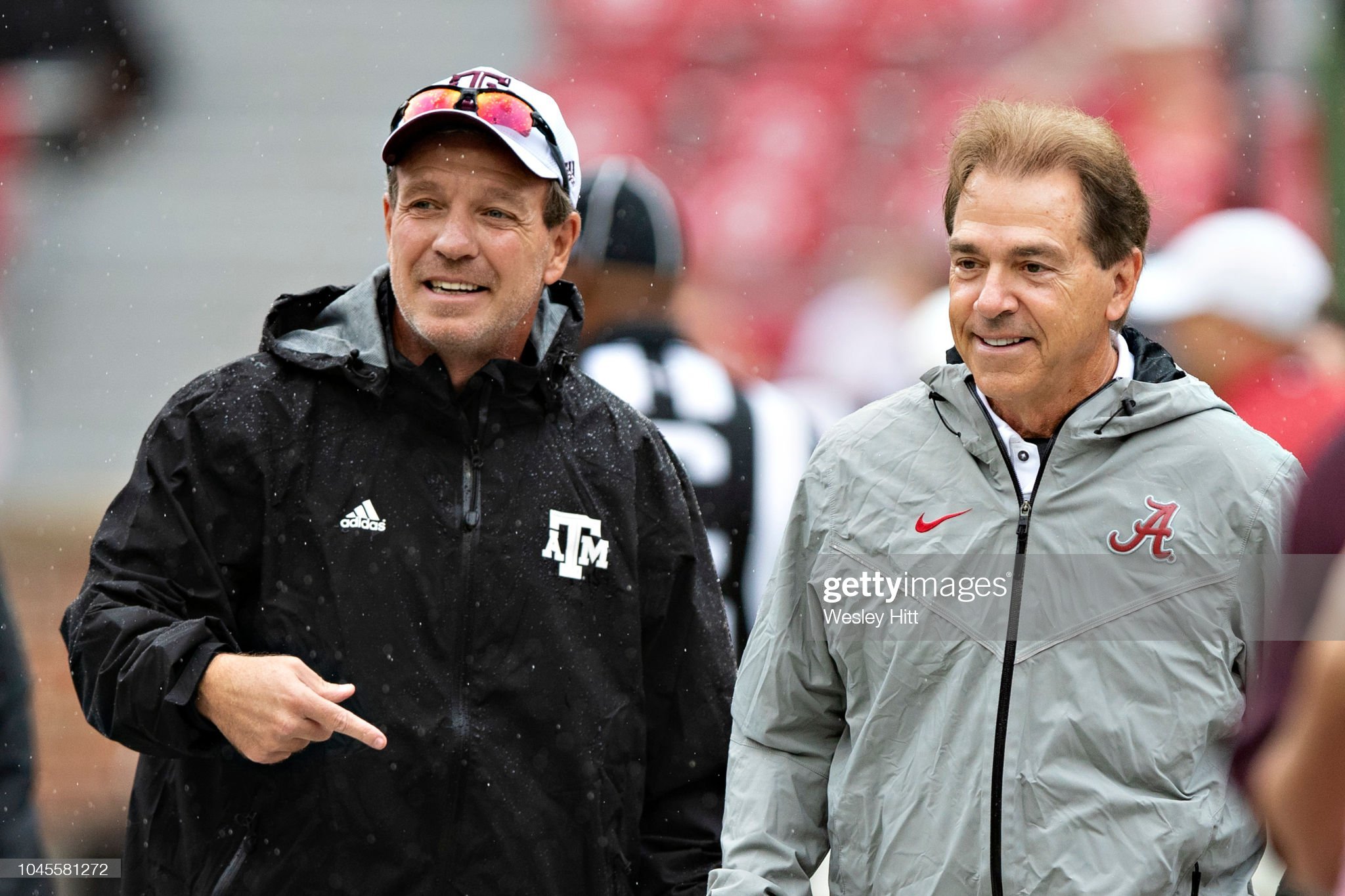Nick Saban, Alabama Calls Out Jimbo Fisher and Deion Sanders for “Buying” Players
The Alabama football program has been one of College Football’s most relevant dynasties in recent history. The Saban-led program has amassed winning season after winning season and has the championship rings to boast. Since Nick Saban took over the program nearly 15 years ago, he has won 6 championships and has the best track record for players drafted under him. However, the days of the Bama Dynasty have begun to fade as they could not win a championship in 2021 after losing to UGA in the National Championship Game. Although it is only one year without a championship, Alabama was defeated in a convincing fashion. It was the first time that Georgia had beaten a Saban-led Alabama team.
During this offseason, Alabama has faced several challenges in losing in the National Championship and recruiting and off-the-field issues. Since the end of the season, Alabama has had at least 3 players transfer and another player was dismissed from the team by Saban. For many programs, dismissing a player is a common occurrence and may just be a casualty of running a top-notch program, however, coaches like Nick Saban, he has rarely ever dismissed his players and typically will give them alternative consequences to correct the behavior. However, as of late, the players seem to be challenging Saban’s vision more and undermining his wishes.
Jahleel Billingsley, Former Bama Tight End, and current Texas transfer left the program in January, and former five-star WR Agiye Hall also was dismissed from the program and went to Texas. These are among the top guys out of nearly 15 players who were either dismissed or willingly entered the transfer portal. This doesn’t look good for the Bama program, but as always, they are making room for new talent that will likely be showing up this spring and summer.
Over the past few days, Nick Saban has been in the forefront of the media himself as he was cited stating in an interview that Jimbo Fisher and Texas A&M were involved in “paying” his entire team to come to Texas A&M. Saban stated:
"A&M bought every player on their team -- made a deal for name, image and likeness. We didn't buy one player. But I don't know if we're going to be able to sustain that in the future because more and more people are doing it."
While the allegations are likely true, through the new “Name, Image, and Likeness” Bill passed by the NCAA, schools, and donors are able to put together deals that allow for players to be paid through sponsorships and endorsements. While it may seem as if the program is involved in some unethical behavior by offering these deals, the allegations of Nick Saban aren’t reasonable under the new rules.
In response to Saban, Jimbo Fisher stated the following:
“Some people think they're God. Go dig into how God did his deal. May find out about a guy, a lot of things you don’t want to know. We build him up to be the Czar of football, go dig into his past or anybody who has coached with him. You can find out anything you want to find out. What he does and how he does it. It’s despicable.”
Jimbo Fisher, who has an extensive history with Nick Saban surely had some choice words, but his relationship gives him credibility in his statements.
Not only did Saban fire off at the Texas A&M program, but he also had some subliminal words that were seemingly aimed at Deion Sanders and the Jackson State football program. He seemed to be referencing the former top player in the class of 2022, Travis Hunter, who despite having every major offer in the nation, chose an HBCU program over the other big schools.
With the landscape of college football becoming more of a professionally incentivized league, it is hard to stop schools with big-money donors to not chip in to get the nation's top recruits. However, it becomes messy when coaches begin to go at each other about what is ethical and unethical without the NCAA stepping in to clear up any discrepancies because now college football fans, coaches, and players all seem to be on a different page when it comes to understanding the limitations of NIL and the transfer portal rules.


